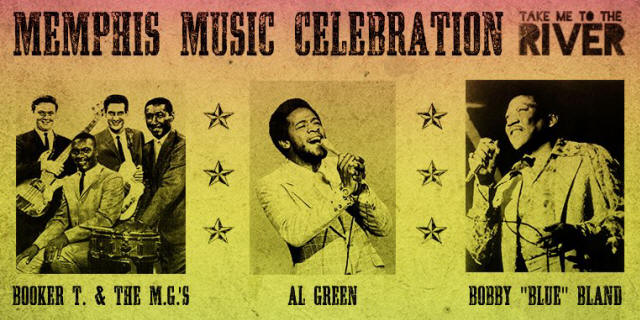Take Me to the River
Film Reviewed by Kam Williams
 Take Me to the River (2014)
Take Me to the River (2014)
In Theaters: Sep 12, 2014 Limited
Rated: PG
Running Time: 95 Minutes
Musical & Performing Arts, Documentary
Directed By: Martin Shore
Written By: Rick Clark, Jerry Harrison
Produced By: Martin Shore, Jerry Harrison, Cody Dickinson, Lawrence "Boo" Mitchell, and Dan Sameha
Cast: Terrence Howard, William Bell, Snoop Dogg, Mavis Staples, Otis Clay, Lil P-Nut, Charlie Musselwhite, Bobby "Blue" Bland, Yo Gotti, Bobby Rush, Frayser Boy, The North Mississippi All-Stars and many more.
Film Review by Kam Williams
Very Good (3 stars)
A lot of great soul music came out of Memphis in the Sixties and early Seventies. Stax Records launched the careers of acts like Otis Redding, Isaac Hayes and Booker T. and the MGs while its cross-town rival Hi Records had Al Green, Ann Peebles and O.V. Wright. Take Me to the River is a reverential retrospective which is a combination tribute to the city’s impressive legacy and a tip of the cap to some up-and-coming artists still recording in the region.
The movie marks the directorial debut of Martin Shore, who tapped Terrence Howard to narrate the documentary. The Oscar-nominated actor also raps and sings in the picture which features the reflections of hip-hop icon Snoop Dogg who pays tributes to the trailblazers that paved the way for him.

But what makes the movie worth its while is hearing such soul greats as Booker T., Mavis Staples, David Porter and Charlie Musselwhite wax romantic about the good ole days. We learn that the bands were often integrated at a time the rest of Memphis was still strictly segregated.
Some of the reminiscing relates how the local cops would deliberately profile and harass them as they exited the studio after late-night sessions, being not only racist but jealous of the groups’ newfound fame and fortune. We also hear about how the assassination of Martin Luther King in Memphis cast a pall over the entire town that ultimately took a toll on the music business, too. Stax executive Al Bell refers to his company’s early demise as an economic lynching.
An overdue homage to a city that for close to a decade was home to the second largest black business in America.

Read More AALBC.com Film Reviews
